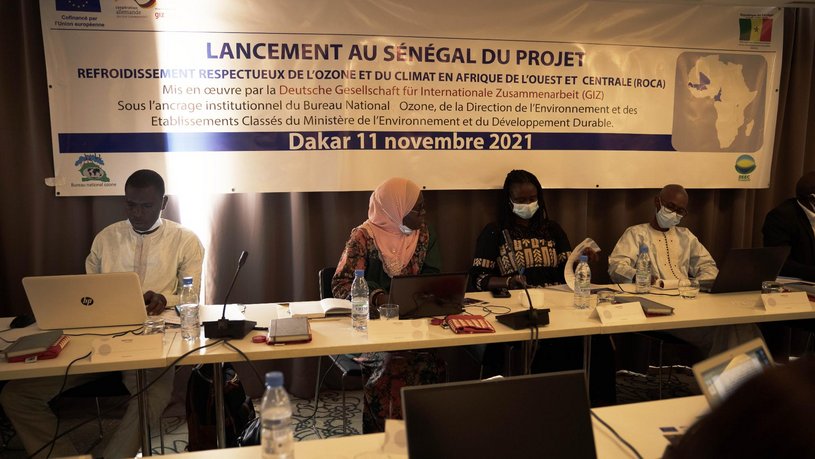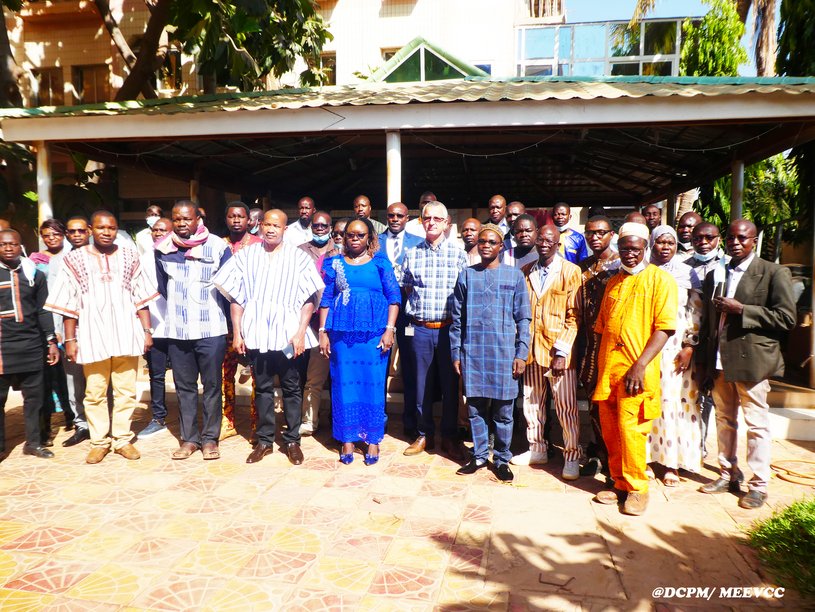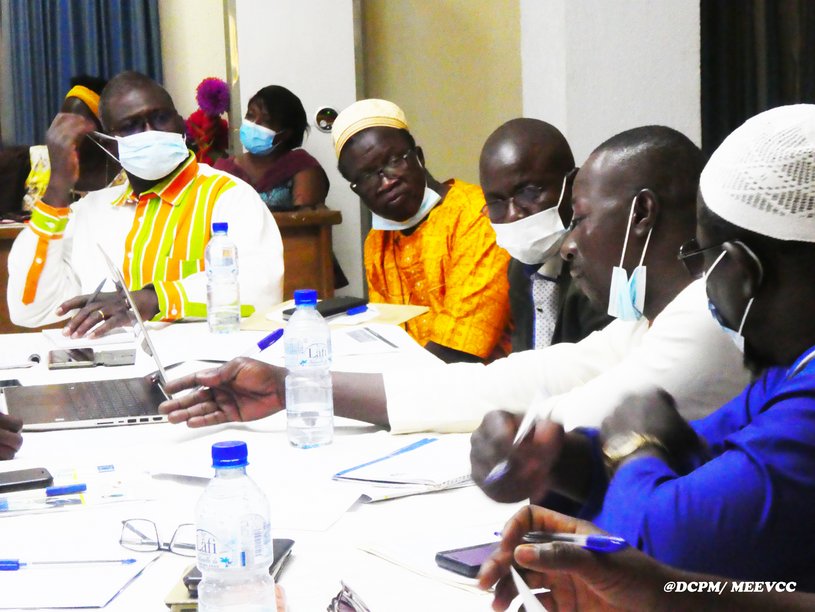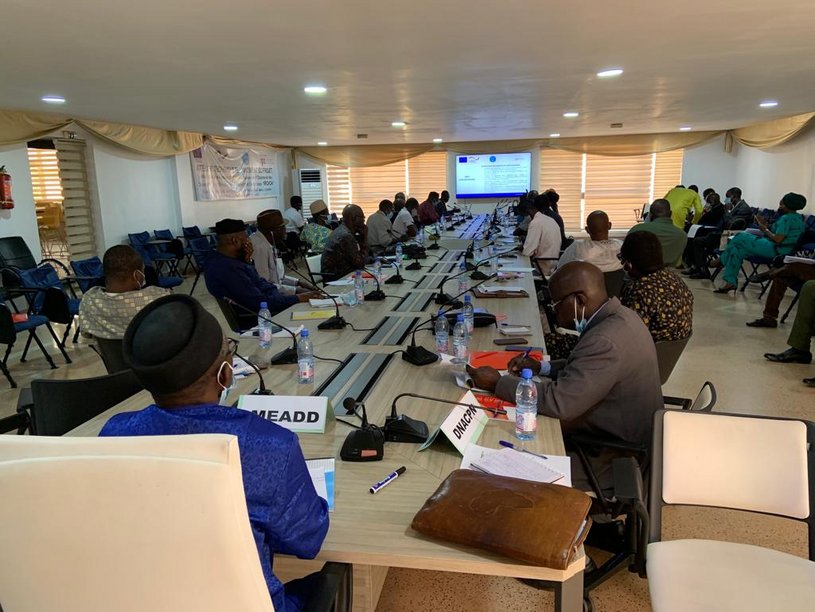The ROCA project is looking back at an intense month: Kick-off workshops were held in Senegal, Burkina Faso and Mali with relevant stakeholders. They laid the basis for pilot projects, trainings and advisory activities to be implemented in the coming years.
ROCA is co-financed by the European Union (EU) and the Federal Ministry for Economic Cooperation and Development (BMZ) and implemented by GIZ with local partners. It was launched in 2021 and is short for "Refroidissement respectueux de l’ozone et du climat en Afrique de l’Ouest et Centrale" (Ozone and Climate Friendly Cooling in West and Central Africa).
Senegal, 11 November 2021

The series of workshops started with a hybrid event in Dakar. It was chaired by Mr. CHEIKH FOFANA, the deputy director of the Senegalese Direction de l'Environnement et des Établissements Classés. The main objective was to gather the different actors of the Senegalese cooling and energy efficiency sector to communicate on the terms of reference of the ROCA project and to identify synergies and set up partnerships in order to facilitate the achievement of the objectives for a sustainable development of cooling in Senegal.
The exchanges that followed the presentation of the project focused on the need to draw on structures such as the AEME, to take into account the directives of the UEMOA and to integrate into a dynamic of sub-regional harmonization of policies in the field of energy management and energy saving.
Burkina Faso, 24 November 2021

About 45 people gathered in Ouagadougou in person and a few more by videoconference to learn more about ROCA and to give GIZ and the Burkinabe government their input and expectations for a successful implementation of the project.
In his opening speech, Mr. Désiré OUEDRAOGO, Director General of Environmental Preservation, recalled that natural refrigerants are a viable alternative to HCFCs and HFCs. He stressed that it is in this context that ROCA is important:
"The said project is expected to lead our country towards sustainable cooling, with a gain in energy efficiency and the use of natural refrigerants."
The participants had lively discussions on the challenges of the project and developed valuable proposals on different subjects. One topic, for example, was the low representation of women in the refrigeration and air conditioning (RAC) sector. The reasons identified were, among others, social constraints and lack of motivation among women. The immediate solutions proposed to remedy this state of affairs are awareness-raising and training on sexual behaviour.
Another topic was the strengthening of technology, specifically the use of natural fluids. The participants noted that importers and customers alike are not very familiar with the various refrigerants and their impact on the environment. In addition, there are very few qualified technicians. It is therefore necessary to carry out awareness campaigns and trainings. These results confirm that there is a strong demand for the activities planned by ROCA.

Mali, 9 December 2021
"ROCA is a continuation of the actions undertaken by Mali in the framework of the protection of the ozone layer and the reduction of greenhouse gases”
said Mr. Modibo KONE, Malian Minister of Environment, Sanitation and Sustainable Development, in his opening speech.
Charing this mindset, the participants had fruitful discussions. All stakeholders of the RAC sector in Mali were gathered at the Conseil National du Patronat du Mali (CNPM) and online: about fifty representatives of the private sector, training institutions, financial institutions etc.
In Mali, too, the participants’ recommendations confirmed that the activities planned by ROCA are relevant. For example, it was highlighted that it is necessary to raise awareness among RAC sector actors, to train technicians to master the use of green refrigerants, and to work on improving the policy and regulatory framework. The next steps were defined in order to achieve the objectives of the project, namely to contribute to the green transformation of the RAC sector in Mali.

